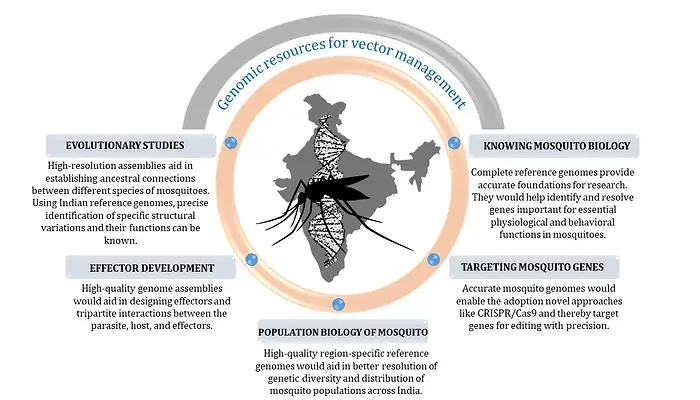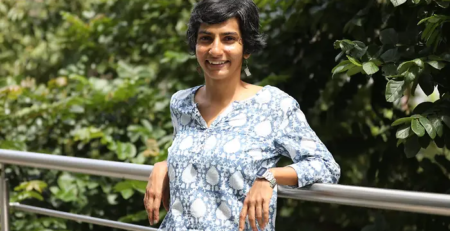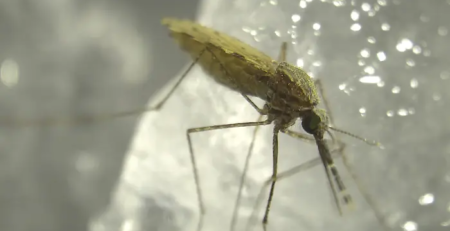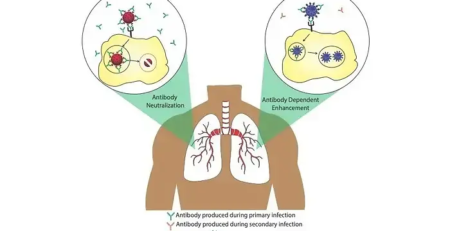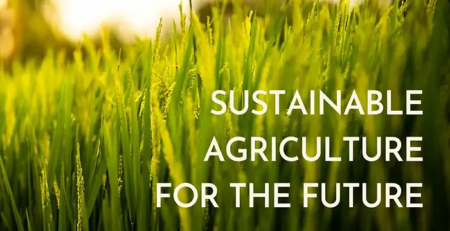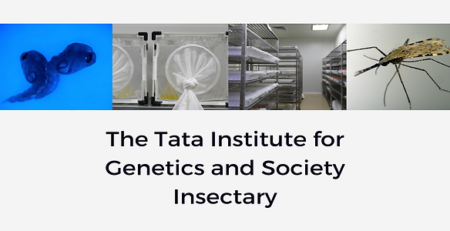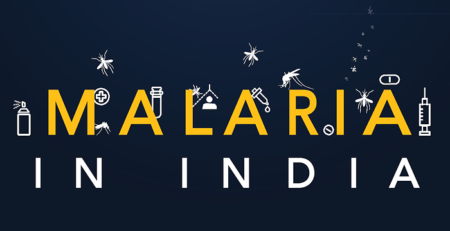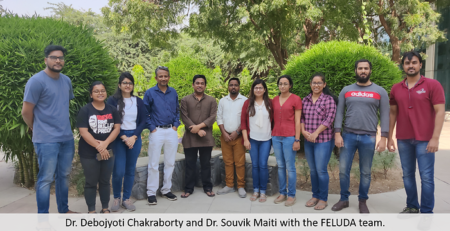Mosquito vector management and understanding the transmission of pathogens is a complex task in India. There are many reasons for these observed complexities: (i) geographical area of the country, (ii) considerable variations in environmental conditions across the latitudinal and longitudinal coordinates, (iii) anthropogenic activities, industrialization and urbanization, (iv) evolution of mosquito vectors and parasites, and so on.
The challenge
The challenge of controlling mosquito-borne diseases has two facets: (a) mosquitoes, as competent vectors which spread the disease and (b) parasites, which cause the disease. Among mosquitoes, insecticide resistance, adaptability to new habitats, and changes in feeding behavior are emerging problems. Parasites also exhibit evolution and resistance to antimalarial drugs. Their persistence in asymptomatic hosts adds to the challenge.
These circumstances call for the development and application of new technologies in vector control in tandem with existing technologies for effective management. However, progress in this direction is slow due to inadequate understanding of the evolutionary biology, host-parasite interaction, and the genomics & proteomics of mosquitoes.
Our endeavor
To meet these challenges and to develop the tools to fight them, we aim to develop a high-quality genome assembly of Anopheles stephensi populations from India as a first step, and then do the same for other mosquito vector species. An. stephensi is distributed in different parts of India, and having a reference genome would help in thoroughly understanding the population genetics, gene flow, and diversity of Anopheles populations in India. This high-quality genomic information of mosquito vectors across India would help to design focal and effective solutions against them. The availability of essential genomics information of major mosquito vectors of disease will change the landscape for understanding mosquito biology and its implications in disease transmission.
The genomic resources
We are working towards establishing high-quality reference genomes and databases of variations found in several major vector mosquito species in India. Using this high-quality assembly, we are exploring many hidden and interesting questions about mosquito biology, its behavioral adaptability, resistance to insecticides, etc. This data will be made available to the public through a user-friendly web-based interface that can be used by both project scientists and the broader mosquito research community to study the biology of these species. These resources can be leveraged to gene profile mosquitoes to elucidate what makes some mosquitoes susceptible to acquiring pathogens and what makes others resistant.
Together we can…
These genomic resources will empower researchers from diverse fields of mosquito biology in the management of mosquito vector borne diseases. The genome is seeping into everything — it will help identify genes and develop genetic tools. Establishing a high-quality reference genome through sibling mating, high-quality DNA extraction, library preparation, Pacbio sequencing, genome assembly, and gene annotation was quite a challenge among An. stephensi mosquitoes. However, we are proud to have made the reference genome assembly, which would serve as a foundation for all genomic data and databases. It provides a scaffold for genome assembly, variant calling, RNA or other sequencing read alignment, gene annotation, and functional analysis. Our hope is that this resource would be useful for academic and governmental agencies involved in vector control research in India and abroad.

